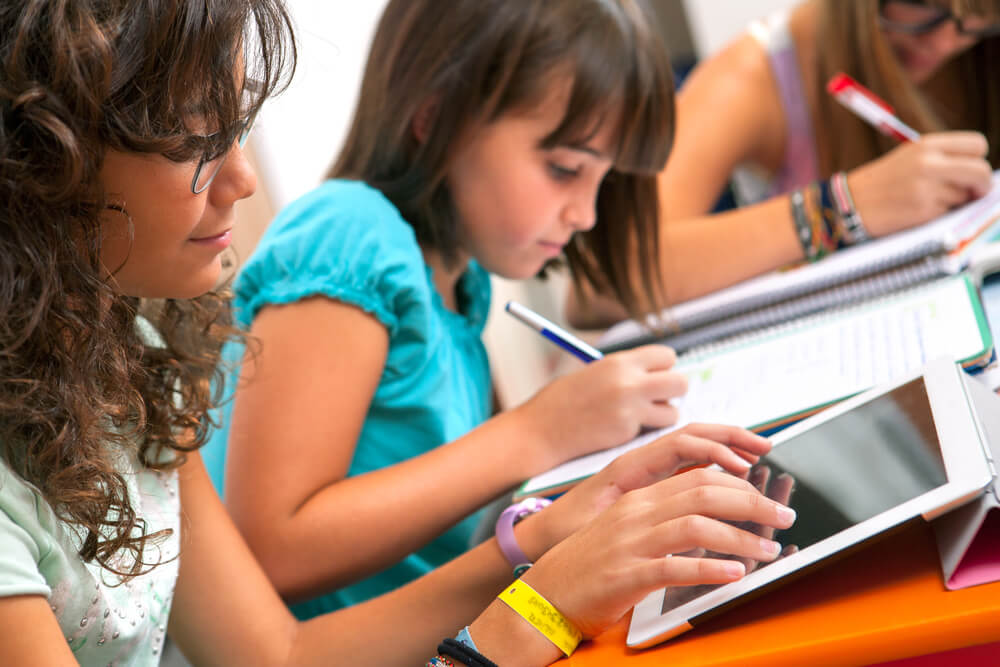It is absurd to think that behind the incredible technological advances that have taken place in recent decades, there is a sector of society that can be “contaminated” by its effect: the education system.
In many cases, technology is advancing faster than our ability to upgrade, even if it doesn’t happen with new generations, which have already grown with a bottle in one hand and a tablet in the other.
- It is not that some sectors more or less interested in change are doing their best.
- It is our children and young people who are making this change with them.
- In the way they understand and relate to the world that has already changed.
An education system that does not advance at the same pace and is part of these artificial but real means can waste children a very valuable time that cannot be recovered.
Especially in the fact that the traditional linear education system no longer has a place in our environment, we have been thinking for several years that the changes would come, but would not happen, teachers, parents and students have been blamed for this.
The abandonment rate is very high. Our children get bored at school (someone might think it’s always been like this, which is no excuse for them to continue to be so).
It’s not about making small adjustments or adding up what’s already done, we’re talking about a profound change in educational institutions. Changes in the means used, the way content is sent to students and the way they are acquired.
Also a change in the values of which we are models. A change in the ways skills are acquired. This was not a priority in the traditional education system. However, our young people will need it in their adult lives.
Today our children learn more online and with their friends than in school, the teacher no longer has the information. The information is on many screens, in many portals. Children know how to get it; that is, when they’re interested, they don’t have to wait for someone to teach them.
We will probably see a significant change in the teacher’s face in the coming years, today’s students need tutors to guide them, not to provide knowledge they already have at hand.
Linear education is based on a transmission of information completely disconnected from the emotional sense, this type of education assumes that the child is ignorant and must be completed, highlights the difference between teacher and student, there is no dialogue, no creativity, learning is volatile, the student is passive.
The new trends in horizontal education suggest that it is the student who seeks knowledge, argues that the student is able to think and that learning the experience is vital, the teacher needs to focus more on skills than content and know how to solve learning situations.
“Emotions and motivation attract attention and decide what to learn. ” – Begoa Ibarrola-
What we have been feeling for a long time has become a reality, positive emotions improve our understanding and memory, while motivating learning, emotions promote learning because they strengthen synaptic connections and the activity of our neural networks.
In this sense, neuroeducation is a valuable tool that will facilitate the work of teachers when developing students’ personal skills and skills and thus facilitating the learning process.
It will let them know how the brain works and how it relates to student behavior and learning pace.
In addition, it is very positive that teachers know how a brain learns, how it controls emotions or processes information. The time to plan a lesson from a book is behind us.
There is a significant lack of professional profiles to meet the needs of today’s businesses, our professional environment has changed a lot.
Our old educational system was based on the industrial revolution and its professional needs. We can no longer train young people in this way, because the job market needs hands with different skills. More than repeating, it is about innovating with intelligence.
Creativity, teamwork, conflict resolution, critical thinking, leadership, and innovation skills are skills companies seek in curriculum.
That’s why what you’ve studied is important, but even more importantly how you present yourself and what you’re capable of, this is what will allow you to face your future professional reality.

